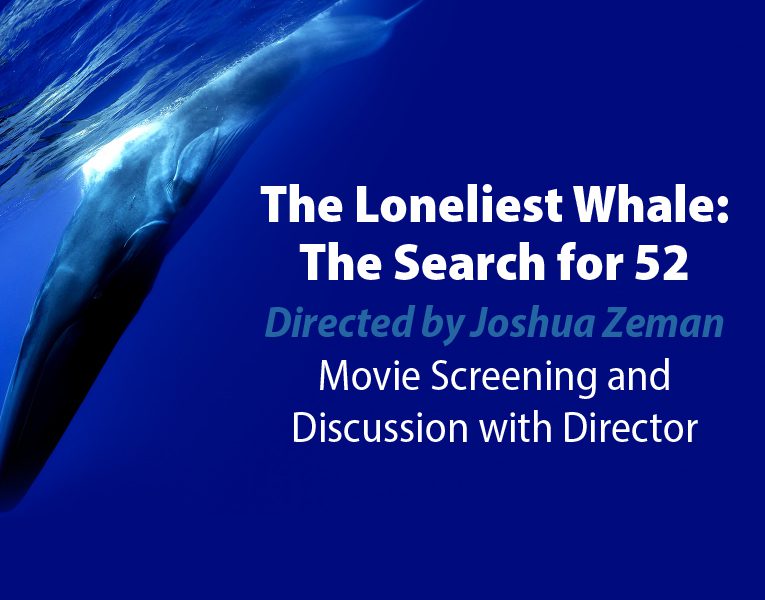This is a in person event
In 1989 the U.S. Navy detected a mysterious signal in the Pacific Ocean. The unidentifiable sound, picked up by a top secret, Cold War-era surveillance system designed to track enemy submarines, vibrated through the depths at an enigmatic 52 hertz. The noise was definitely not a submarine.
After months of study, Dr. William Watkins of the Woods Hole Oceanographic Institution in Massachusetts concluded this strange subaquatic rumble belonged to a whale calling out in a distinctive frequency, nothing like other whales who moved in similar migratory patterns. A whale’s call is social, but no response was ever recorded. Watkins surmised that this singular creature, nicknamed “52,” was solitary and unique, possibly the first or last of his kind, a whale unable to find a mate or bond with others of his species.
Watkins tracked 52’s song for the next 12 years, and in 2004 the whale was profiled in The New York Times. Readers around the world were spellbound by 52’s plight. Some sociologists theorized that our fascination with his story came from a growing feeling of loneliness overrunning our techno-centric society.
The Loneliest Whale: The Search for 52 examines the Cold War science of submarine warfare that led to the discovery of 52, the centuries of brutal whale hunting that brought many species to the brink of extinction, the discovery of haunting and complex whale songs that prompted a worldwide effort to save them, the growing scourge of ocean noise that disrupts the lives of whales today, and whether society’s dependence on technology is actually isolating humans from one another.
If 52 is still out there, can he be found? Is it possible to launch a search for one whale in the vastness of the world’s oceans? In the journey and the potential discovery of 52, the filmmakers take us on an exhilarating adventure toward understanding this unique creature and its link to humanity.


